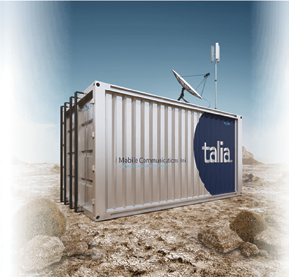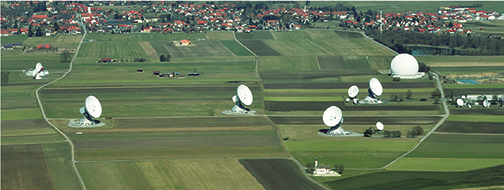The world may be getting ever smaller, but it’s unlikely that the globe will ever be small enough not to need more innovative communication methods.

As we search for more sources of energy to support the growing population and to replenish depleting stocks, there are more remote workers than ever before, and more remote outstations, sometimes controlled from miles away with only a skeleton staff to maintain them. Where you have staff, you must have communication, and that essential drives the need for VSAT, Internet access and other methods of connectivity to be smaller, better and more secure than ever.
Take for example the oil & gas (O&G) industries. It’s no secret that we are stretching further into remote areas, by air, sea and road to facilitate the retrieval and transfer of these minerals and also well known is how intense the competition is in these fields. From the many oilfields of the Middle East to the gas pipelines in Latin America, there is a enormous demand for the secure transmission of data, particularly with the huge array of devices from smartphones, tablets and laptops in use by companies, many of which are selected by the individuals rather than corporations. This requirement for security is something that many of the bigger companies who make their money in O&G are in greatest need of obtaining.
The requirement for surveillance is also a priority in order to ensure no breach of the oil or gas pipes and to make certain there is no risk to company employees stationed at these outposts. Many of these remote locations require constant surveillance as the political climate can be uncertain—O&G companies are considered ripe targets for militant aggression.
The story is similar when it comes to the construction industry. As the population grows, new places to build must be located. With this need comes the requirement for communication, even at the most remote of outposts and building sites. If a man-made island in Dubai is to be engineered, or a transport network into Africa is to built, after that perfect location for the build is located, construction starts. Communication from the outpost to the mainland must be two-way—data will need to be uploaded and updated as the project moves forward to completion. Take a reliable, secure, communications provider out of the equation, and the project becomes an impossibility.

This touches only on the needs of the company. The staff that are posted to these remote places must also be considered—without the provisioning of communications, the ability to attract and keep the best quality staff becomes an exercise in futility. Send a person to the ends of the Earth and if communication with friends and family is unavailable, staff turnover will be fairly rapid—and there could well be disenchanted staff resultant of such communication oversights. At the worst end and some very disenchanted staff at the other. Allow easy communication with loved ones and there will be happier workers who are proven to be far more productive.
Each industry has their own specific problems and, therefore, solutions come in many different forms.
Ideal for those traveling and working in remote locations, there are VSATs (very small aperture terminals) that are light enough to be mounted onto vessels for transmission of data such as SCADA, broadband data, RFID and that also support video communication.
The innovation of mobile communications units, such as Talia’s MCU, is a big benefit for numerous industries such as O&G, construction and mining companies. This solution offers a self-contained, rugged, outdoor IT system that can be easily transported, installed and placed into operation quickly. Also ensured is the safe and secure transmission of data from far-flung locations back to base.

Mobile communication units are highly versatile and offer a variety of capabilities, depending upon user needs. Such products are designed to withstand harsh terrains and provide a fully workable IT data center and communication hub at a remote area.
To solve security woes in regard to surveillance and safety, video surveillance deserves solid consideration. If repair is required, or site intrusions are observed via the surveillance cameras, then engineers or security services can be dispatched quickly and this can make all the difference for a company, particularly in an emergency situation.
The need for communication constantly drives innovative ideas for secure communication. Soon, all of Earth’s regions will be able to communicate to any locales around the globe—it is a small world, after all.
Additional information regarding Talia is available at their infosite: http://www.talia.net/

